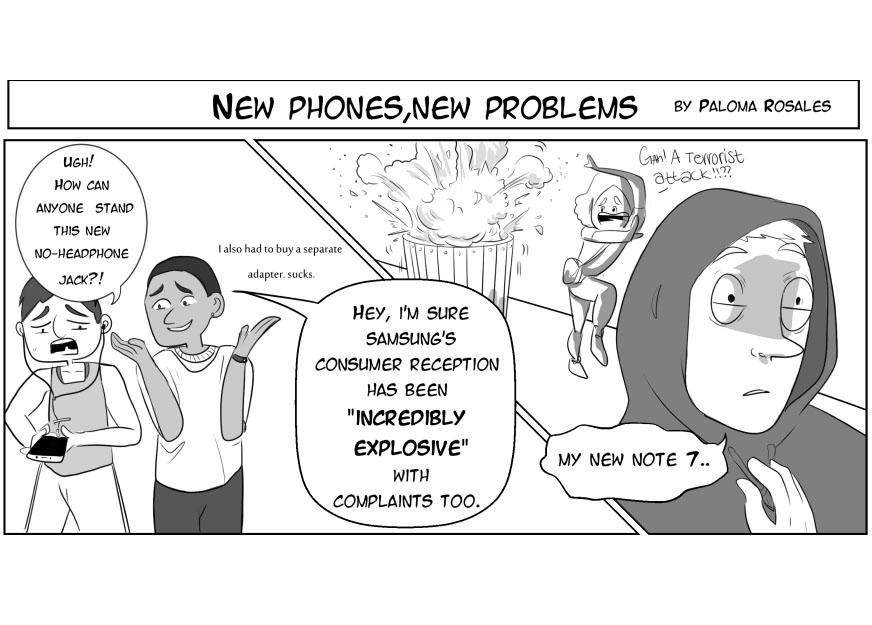Reporter
Once more, the season has come for smartphone users to ask themselves: iPhone, or Android? It’s an important question, and the topic of much discussion, but nonetheless it’s veiled in mystery. With the back-to-back releases of Apple’s iPhone 7 and the Galaxy Note 7, Android’s champion from Samsung, the smartphone arena is presented with a new pair of gladiators that battle contentiously for smartphone superiority.
As the two face off, it’s up to consumers to decide which faction reigns superior- but before we do so, let’s remove some of the mystery behind the comparison.
First, we must ask, what do we want from a smartphone? The expectations here are a cut above the expectations from normal cell phones- beyond the basics of making calls, sending texts, and taking pictures and video, we expect our very costly smartphones to be fast, powerful, reliable, sleek, customizable, and compatible.
Innovation in the world of technology does have its drawbacks. Design flaws like the famous case of the “bending iPhone 6’s,” or the iPhone 7’s “aux cord for the aux cord” are bound to happen as tech companies strive to provide the most in cutting edge technology. Most notably in recent news, Samsung’s “exploding” Galaxy Note 7’s compromised the sense of reliability consumers look for in a smartphone.
Before I continue, I need to put the fear mongering behind this whole “exploding Note 7” thing to rest. The 35 note 7s that “exploded” actually just caught fire, and did not do so spontaneously
For the sake of the overall debate, I’ll set these occasional mishaps aside and restrict the comparison to the following main areas: the Operating System, the Hardware, and the special features that set the phones apart.
As we all know, Apple’s iOS set the standard for smartphone user interface. It’s literally in a class of its own. As any Apple representative would attest, iOS is formatted from the bottom up to deliver unparalleled ease of access, antivirus, and compatibility between Mac products.
However, this compatibility also means that iPhone users are excluded from the wider world of non-Apple software. If you want your phone to “play well” with other devices, your iPhone requires the full Apple setup: Mac, Apple TV, iTunes, the whole package. And when the iPhone falls so short in hardware, that starts to become less okay.
Android upped its game immensely in recent years, resulting in a line of smartphones that can blow iPhone-anything out of the water in terms of power, customizability, photo/video quality, memory, resolution. Basically, all the benchmark areas of a smartphone.
The Google Play store for Android has also improved its app options, making it comparable- if not better than- the iTunes app store. For the price of an iPhone, you could get an Android device with nearly twice the resolution, more than twice the processing power, a better camera, and virtually endless storage using removable microSD technology.
The bottom line? Android looks set on pulling further and further ahead of iOS, untethered from the limited world of Apple software that confines iPhones.
I made the switch from iPhone to Android a year or so ago, and I haven’t regretted it once.
If what you’re looking for is the tried-and-true package of cookie-cutter smartphone options, then, by all means, feel free to settle for the newest flavor of the good ‘ole iPhone. But if you want fast, powerful, reliable, sleek, customizable, and compatible, consider braving the wider world of technology with an Android device.
View the Team iPhone opinion at https://therunneronline.com/?p=13682









